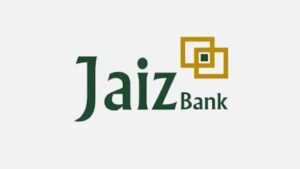
W’Bank urges FG to increase VAT rate for non-oil revenue boost
…Nigeria’s VAT revenue hits new high in Q3, 2023
…Alarming figures: 24 million Nigerians slip into poverty
By Sodiq Adelakun
The World Bank has advised the Nigerian government to raise the Value Added Tax (VAT) rate to enhance non-oil revenue. The suggestion was made in the World Bank’s Bi-annual Nigeria Development Update, which was titled “Turning the Corner: From reform and renewed hopes, to results.”
The report recommended that the current VAT rate of 7.5 percent should be increased to create more fiscal space and boost non-oil revenue. Nigeria is currently seeking to diversify its economy away from oil and increase revenue from other sources.
However, the bank cautioned that any increase should allow for input tax credits, while exemptions on petrol should be removed as some of the measures recommended to raise non-oil revenues.
It stated, “Increase VAT rate while allowing for input tax credit; remove exemptions for petrol products.”
Other recommendations from the bank geared towards increasing non-oil revenue include; the use of data towards tax auditing and the introduction of simple turnover tax for SMEs at the state level rather than the multiple levies and fees.
…Benefits of Tinubu’s reforms if sustained
The report also noted that the reforms of President Bola Tinubu, if sustained, can help reduce inflation to 19.6 percent in 2025. Nigeria’s current inflation rate stands at 27.33 percent for October 2023.
President Tinubu is targeting an inflation rate of 21.4 percent for 2024 according to his budget presentation speech.
He has carried out two massive reforms since his inauguration in May- the unification of the foreign exchange market and the removal of the costly subsidy on petrol.
The bank further highlighted other benefits of the reforms if sustained in the long run to include an increase in GDP growth to 3.7 percent in 2025, a reduction in fiscal deficit ratio to GDP from its current 5.1 percent to 3.7 percent in 2025, and a reduction in the public debt service as a percentage of revenue from 102 percent in 2022 to 51 percent by 2025.
…Nigeria’s VAT revenue hits new high in Q3 2023
The Federal Government of Nigeria has generated a total of N948.07 billion as Value Added Tax (VAT) in the third quarter of 2023, according to a recent report published by the National Bureau of Statistics (NBS).
This figure represents a significant growth rate of 21.34 percent compared to the second quarter of the same year, where N781.35 billion was generated.The report further breaks down the VAT contributions into different categories.
Local payments accounted for N522.08 billion, while Foreign VAT Payments amounted to N204.58 billion. Import VAT also made a substantial contribution of N221.41 billion during the third quarter of 2023.
Analysing the growth rates of various sectors, the NBS report highlights that agriculture, forestry, and fishing experienced the highest growth rate of 91.87% on a quarter-on-quarter basis.
This was followed by the activities of extraterritorial organizations and bodies, which saw a growth rate of 80.25 percent. Conversely, the real estate sector had the lowest growth rate with -37.68 percent, and the construction sector followed closely with -9.54 percent.
The significant increase in VAT revenue for the Federal Government indicates a positive trend in economic activity and consumer spending.
This growth can be attributed to various factors, including increased business transactions, improved tax compliance, and a recovering economy.
The government’s efforts to diversify revenue sources and enhance tax collection mechanisms have also contributed to this positive outcome.The NBS report provides valuable insights into the performance of different sectors and their contributions to the overall VAT revenue.
In terms of sectoral contributions, the top three largest shares in Q3 2023 were manufacturing with 26.51 percent; information and communication with 19.04%; and financial & insurance activities with 12.31 percent.
Nevertheless, activities of households as employers, undifferentiated goods- and services-producing activities of households for own use recorded the least share with 0.02 percent, followed by water supply, sewerage, waste management, and remediation activities with 0.06 percent; and activities of extraterritorial organizations and bodies with 0.10 percent.
However, on a year-on-year basis, VAT collections in Q3 2023 increased by 51.60 percent from Q3 2022.
…Alarming figures: 24m Nigerians slip into poverty
According to the World Bank’s latest Nigeria Development Update report for December 2023, sluggish growth and rising inflation in Africa’s largest economy have resulted in an additional 24 million Nigerians falling into poverty within five years.
The report states that poverty levels have increased from 40 percent in 2018 to 46 percent in 2023, pushing the number of poor individuals from 79 million to 104 million.
The urban poor, who are more vulnerable to inflation, have risen from 13 to 20 million, while the number of poor people in rural areas has increased from 67 to 84 million.
“In the medium term, the recent reforms will reverse this trend through higher growth and lower inflation, but to a limited extent, with poverty rates decreasing from 46 per cent in 2024 to 44 per cent in 2026,” it added.
According to the international organisation, reforms are expected to undo the increases in poverty seen in recent years from 2024 onward, albeit only marginally and slowly.
In May, President Bola Tinubu scrapped a costly but popular petrol subsidy and lifted currency controls in June, which he said was to save the country from going under.
But his actions have worsened inflation in double-digits and at the highest level in 18 years. The rising inflationary pressures have weakened the purchasing power of consumers, even as businesses grapple with higher operating costs.
The removal of the petrol subsidy tripled the petrol price to N617 from N184, causing public transportation providers such as buses, tricycles and motorcycles to raise transportation fares.
The naira has plunged to record lows across markets since the central bank allowed it to weaken by as much as 40 percent against the dollar in June.
According to the NBS, the country’s inflation rate, a measure of the general price level, rose to 27.33 percent in October from 26.72 percent in the previous month.
Nigeria’s inflation has increased in 2023 and reached an almost two-decade high, according to the authors of the World Bank report.
“Inflation has historically been high and persistent in Nigeria—in 13 out of the past 15 years, inflation was higher than 9 percent, the ceiling of the CBN’s target range—reflecting the combination of loose fiscal and monetary policies, structural supply constraints, and external shocks,” they said.



